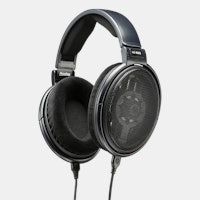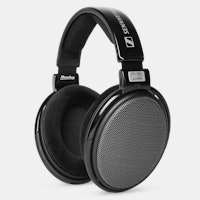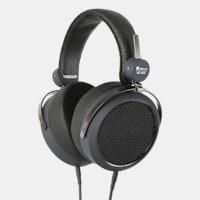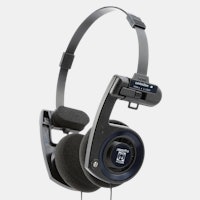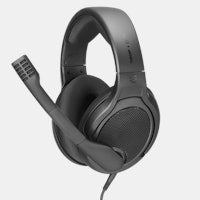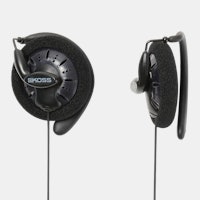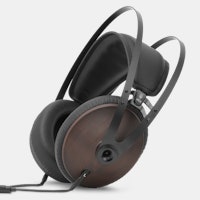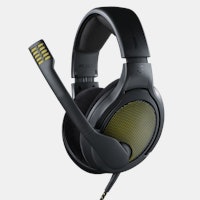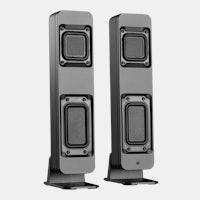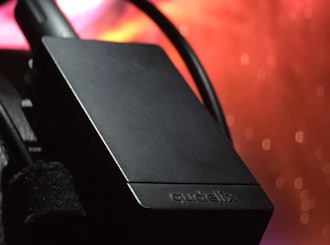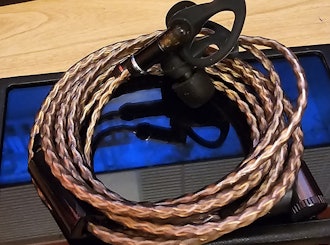Click to view our Accessibility Statement or contact us with accessibility-related questions





















Showing 1 of 1068 conversations about:

DarkVoice 336SE OTL Headphone Amp

ferretallica
919
Apr 22, 2019
Serious question - why would anyone make (or buy) an amp in this price range without a balanced output?

jaydunndiddit
3262
Apr 22, 2019
ferretallicaBecause there are still plenty of amps that have more than adequate single ended output power and low noise/distortion. If your amp provides enough current/voltage for your headphones and the amp isn't nearing it's clipping point, then SE is plenty. A well designed SE output can still perform equivalent to balanced if the manufacturer takes the time to do it properly.
Example, the Cavalli Liquid Carbon X has poor SE and it was put there for "convenience" as balanced was the focus. The RME ADI2DAC is SE only, but measures well and provides plenty of power for just about anything. For that unit, balanced would make little to no difference except for maybe more power on tap. Now, with something like the THX AAA 789, it contains both well-measuring and performing SE and balanced outputs. In that case, it will come down to how much power one needs as balanced for that amp is a big step up depending on gain.
So, all in all, it just depends on use case for what you're trying to drive and how clean that power is. Ideally, a true balanced circuit will outperform SE, but that's not always the case as many manufacturers drop the ball and cost in design plays a role too.

stod
15
Apr 22, 2019
ferretallicaIt's an "audiophile" belief that balanced "sounds" better...it doesn't. It is also believed that if you talk about something for long enough it will become true...it doesn't.
Balanced is used in professional recording studios, television studios, radio stations ect because their cable runs are usually many hundreds of feet long & balanced helps to reject noise over these "very-long" cable runs (notice the words "helps to"). The majority of connects in a pro recording studio are NOT balanced anyway & is only used where there is a benefit to using balanced. There is no benefit to using balanced in your typical home audio setup. If you can hear noise coming out of your speakers &/or headphones at full volume, then you DO have a problem ...but it has nothing to do with it being balanced or not.
All these beliefs are not scientifically true & is costing us ALL a lot more money for our home audio gear. An example of this are the companies Mogami & Canare who supply pro cables to studios ect. These pro cables sell for about 0.70c a foot. The same companies also make cable for the "audiophile" market & these cables are either the same quality or worse than the pro stuff. An example is the "Mogami 2803" cable used by audiophiles. It's almost the same stuff as the pro cable except it uses thinner guage wire ...& it costs around $100 a foot.
The quickest way to lose a sale, is to confuse people with the truth...
(Edited)

jaydunndiddit
3262
Apr 22, 2019
stodWell, the main point of balanced is to deal with noise immunity (rejecting EMI/RFI noise), eliminating ground loops, and higher signal levels. You're also leaving out, as I stated above, the issue in the difference between a fully differential circuit and quasi-differential circuits that vary wildly by manufacturer and their implementation.
Balanced interconnects make a much more significant difference in your setup due to what I said above, but everything has its place depending on your setup and equipment.
Also, all 2-wire headphone transducers and phono carts are inherently balanced. Same with most microphones. So, to say that balanced is "audiophile" nonsense is a stretch. So, if you have devices that are inherently balanced, why would you not ensure the signal path stays balanced end-to-end?
And long cable runs or exotic cables is pretty irrelevant in context to what the OP was asking.

jaydunndiddit
3262
Apr 22, 2019
ferretallica@ferretallica I forgot to link to this earlier, but if you want a lot more info, Benchmark has a great write-up on this subject: https://benchmarkmedia.com/blogs/application_notes/balanced-vs-unbalanced-analog-interfaces

stod
15
Apr 23, 2019
jaydunndidditI don't see how different circuits could possibly matter at the RCA end? Anyway, sorry to the OP for going a bit off track.
(Edited)

jaydunndiddit
3262
Apr 23, 2019
stodBecause of noise rejection and ground loops as I stated. RCA has a higher propensity to be affected or pickup this noise where differential circuits can either reduce or completely eliminate these issues.
By nature of their design, RCA (unbalanced) circuits are more prone to noise and interference. We also haven't talked about unbalanced line level I/O which is roughly 2vrms. Depending on your equipment, you may need more to ensure you retain/maximize the dynamic range of the signal.
This is all stuff we can objectively measure, hear, and observe for ourselves so it's pretty well documented when you step outside of the "audiophile realm."
Kinda why I never mentioned balanced headphones and all that mess as the circuit design of your amp and DAC, as well as the interconnects used, matter more than anything else when we talk about a differential circuit.
Mind you, I'm still leaving quite a bit out as it gets convoluted fast, but I think high level, this covers most of what consumers would care about.

stod
15
Apr 23, 2019
jaydunndidditWhat you are saying is correct, but irrelevant for home use. If you can hear the difference between 100db SNR & 135db SNR you're doing much better than me.
We are not recording music, we are playing music which is a completely different beast. It's like the argument over Hi-Res audio. I record at 32/192 for technical reasons, but I play music at 24/44 because that's all I (or anybody else) can hear. If my turntable could pump out a SNR of 135db I'd be one happy man...but I'd never be able to hear the difference. It's like saying my 192kHz flac file is much better that your 44kHz one...which is true but irrelevant because nobody can hear the difference. If this was a conversation about recording music, I would be taking a very similar stance to you.
BTW, If you spend the time to check those figures from Benchmark, you will find that they are a combination of correct, exaggerated & incorrect. Their business is selling products to a cashed-up gullible market.
(Edited)

jaydunndiddit
3262
Apr 23, 2019
stodTo say that someone can't hear a difference is rather condescending. As you know, it's all subjective and we all have varying degrees of auditory capability. Some, can tell a difference in file quality. Same with MQA, DSD, Redbook, etc. So, I don't think that's inherently fair. Some folks can hear up to 20khz. I tap out around 17.5khz the last time I was tested. For you, that value could be substantially lower due to many factors but doesn't change the fact that I can audibly hear something that you cannot or perceive harmonics that you cannot even due to my own ear anatomy.
Again, this is not about Benchmarks numbers or whatever else. The OP asked about the inherit differences and reasoning behind SE vs differential. I'm trying to provide that without my own personal bias.
No offense, but you seem to have an axe to grind but still haven't addressed the shortcomings of a SE circuit vs a differential one. And as I stated in my initial response, a well designed SE circuit can perform admirably but a comparable balanced circuit will do better than SE due to its design benefits. And this stretches far beyond headphones, amps, DACs, etc. as I stated as well and ultimately depends on the manufacturer and how well they design said circuits.
Out of curiosity, have you heard said units or any in that tier? Legitimately curious if you have for yourself. I have and while I personally wouldn't spend the cash for such minimal differences that I can barely discern, I'd be a liar to dismiss it entirely.

stod
15
Apr 23, 2019
jaydunndidditHi. Sorry, no I have no axe to grind.
Yes I've worked in professional audio since 1983. What you are saying is 100% correct ...for recording music, not for playing it, they are two completely different things, so there's no point comparing the shortcomings of anything. This is how people have been brainwashed over the years to believe things that just don't apply to listening to music. Have you ever read the descriptions Schiit Audio writes for their products? ...that's them laughing at the industry & them laughing all the way to the bank. What do you think it costs to build expensive audio equipment? ...I think you'd be surprised. A cheap capacitor costs like 50c, an expensive one a $1. The difference in the cost of the parts to build a $500 amp & a $5,000 amp could be as little as $0.00
I understand the pros, cons & shortcomings of most systems, circuit types ect, but after a certain point it's all mostly mute for listening to music. But I do know that's not what you & probably most people believe.
As far as DSD goes (for example), yes there is a difference, but the difference has nothing to do with the high resolution of the DSD file, but the mastering practices used. If you down sampled a DSD file to 24/44 wav, there's no way in hell you could possibly tell the difference in a blind test because it's not humanly possible to do so.
Anyway, there's one thing that most people either forget or don't realize ...let's say you could hear 20kHz sound, what would be the point? It's just high pitched frequencies that the human ear doesn't enjoy receiving. Like a dog grimacing when it hears a dog whistle (which is only a 15kHz tone). Most of what we hear is around the 5kHz mark, there's nothing above the 15kHz range that we actually need to hear & if you could constantly hear above 15kHz (at volume), you would literally slowly go mad. Just to clarify, 5kHz sound has quite a bit of volume to it, but 20kHz is very very very soft & barely discernible even under perfect sterile conditions. A 20kHz tone is many dB softer than a 2 to 5kHz tone, so it needs to be increased by many dB to hear, so it's not possible to hear it within the context of music listening because it is drowned out by the MUCH louder lower frequencies.
It is possible to "hear" a single 20kHz-only dB increased tone when tested under ideal conditions by an audiologist, but again this has nothing to do with music listening.
My point is, there is no point as most people can't even discern different sounds around the 15kHz mark under music listening conditions. If you believe you can, that's fine. If we had dog ears, there might be a point to achieving ultimate clarity, but would it be enjoyable to listen to? probably not.
Have you ever spent time in a "Quiet Room"?, I have & it's one of the most disturbing experiences of my life. We humans are just not designed for digital quietness or digital noise for that matter. If you really want to improve your music playback, concentrate on reducing jitter, spend big $'s on speakers, 24AWG interconnects & 12AWG speaker cable (do not use common 10AWG speaker cable).
I'm all for people believing what they like, playing what they like & spending their money on things that give them enjoyment. I personally prefer playing vinyl records to CD's. The CD is obviously technically superior to vinyl by a very very long margin, but vinyl sounds better. Go figure?
Would I recommend spending $10,000 on home audio...no, maybe half that much or less & most of that would go on the speakers & interconnects.
Would I recommend spending $10,000 on recording gear...yes & even that wouldn't be anywhere near enough.
EDIT
As a side note, for the last 20 years or so, manufacturers have made a big hoo-haa about increasing the SNR ratio above 20kHz, but we can't hear any of it. Years ago manufacturers actually spent their time improving what we can actually hear in the 2kHz to 15kHz range, which is why a lot of older components sound sweet compared to their modern equivalents. Again with Schiit Audio, they only quote figures in the 20/20 range because anything else is just BS when listening to music.
(Edited)

zep483
656
May 3, 2019
ferretallicabecause its plenty powerful enough without... and balanced is really only for power or common mode noise, and there souldn't be any with runs of a normal length... so unless you're running your dac from across the room, or your dac has shitty rca outs you're fine :P maybe buy a better unbalanced dac if you have issues ;)

jaydunndiddit
3262
May 3, 2019
zep483The OP asked about balanced amps. And in a home environment, you still have to potentially deal with ground loops and other means of interference. That has nothing to do with cable length. If you've ever had an unbalanced tube amp pick up unwanted noise from something like your router for example, you'd understand. Or interference from your cellphone or even your TV. Or, you could just have bad power in your outlets on power strip introducing all sorts of noise into your stream. A well well designed differential amp can mitigate if not eliminate all those issues whereas unbalanced will hit it's limit with trying to stamp out that noise or ground loops. Why these points keep getting missed, I'll never understand as they can drive you batty when trying to troubleshoot.
Truthfully, if you don't have those issues, then you don't need to get a differential amp unless you need the addl. voltage for line level that some more premium DACs request. Or the added power for something like an HE6.

zep483
656
May 5, 2019
jaydunndidditI would say the problems that you're speaking of have more to do with shielding than balanced vs not... although you do stand a shot of having better shielding on a balanced cable just by the nature of the common method in which they are normally used...

audiowize
13
May 26, 2019
ferretallicaThe output impedance would double, you'd need to double the coupling cap value, the number of tubes (now a larger power transformer), probably generate a B- rail for a differential first gain stage....
We are talking about a $200 amp here...
PRODUCTS YOU MAY LIKE
Trending Posts in Audiophile

Simthaniel
Rigs
Modded headphones with qudelix at the core
When I received the Qudelix 5K, I had already modified a pair of Superlux HD-681 headphones. I previously soldered my own balanced connections to the drivers, providing multiple ways to connect and...
Apr 14, 2024

brothamike
A decent set of IEMs
I am in the midst of a 300 hour burn-in but, I will say I am enjoying how this set sounds so far. Before I received these which was btw late by a few weeks, I purchased a Sony/Kimber Kable MMCX...
Apr 12, 2024
merrick97
Should I exchange the PC38X for better headphones?
I bought the PC38X headphones FOR GAMING and they are great, but I have NO use for a Microphone since I don't do competitive gaming and I was wondering if there were better headphone options at a similar price without a headphone, where (presumably) more of the cost was put into making it sound better. I also find that my PC38X don't get quite as loud as I would like and I was wondering if a cheap amp like the iFi Go link would draw a little more volume out of my phones. https://www.amazon.com/dp/B0BN6MM822?psc=1&ref=ppx_yo2ov_dt_b_product_details I went with the PC38X since it was considered the best bang for buck headphones. I care most about using spatial apps like DOlby Atmos and DTS Headphone:X. Suggestions are welcome.
Apr 11, 2024

LostnAmerica
Sound Signature of the Grell Project.
Wondering what type of sound signature the Drop Grell project headphones will have or trying to attain. Any update would be appreciated.
Apr 8, 2024

Fabulous
Looking for a gaming/content audio setup
Hello! I'm looking for recommendations on audio setups. I'd be planning on using it mostly for gaming. Preferably I'd like a pair of large closed back headphones since I have a big head and jaw. I'd also like to hear myself through my mic with mic monitoring. As far as budget goes, I don't really have one. But under 600$ would be nice. I can go higher if needed. The audio setup would be connected to a high performance PC. Thank you in advance for any recommendations!
Apr 4, 2024

1plsd
$10 Drop Coupon Email not sent?
Trying to buy some gear off Drop for the first time. I was told I would receive an email with a welcome to drop $10 off promo. I never received that email. Drop was able to send me emails for my login token and email for Password update. But for some reason the $10 off coupon was never sent to me.
Mar 31, 2024

NMPacella
New here
Hello, I just joined, primarily for the audiophile products. Looking at purchasing the NHT C3 speakers for our new living room. Space is about 15 feet wide by 33 long and they will fire long ways. Space is just for general listening, music room with all equipment is downstairs, so hoping they will fill it with sound nicely. Cheers.
Mar 18, 2024
